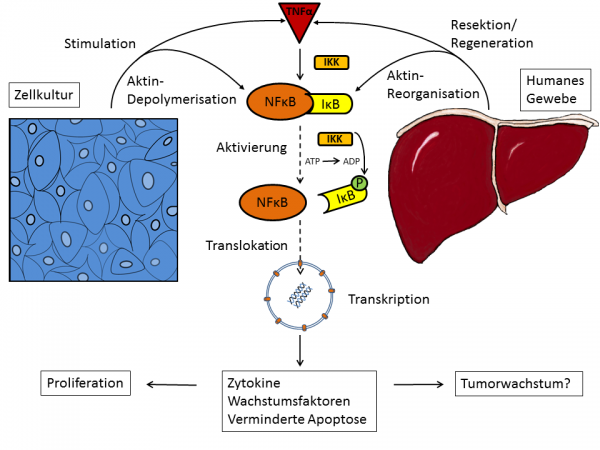Subproject 10: Actin-cytoskeleton, transcription factor NF K B and IkappaB as predictive factors for liver regeneration after a major resection and for the formation of liver cell carcinomas
Clinic for General, Visceral and Vascular Surgery: Wex C /
Institute of Pathology: Haybäck H
The complex mechanisms of liver regeneration are the topic of intense research and have high potential for new strategies for the prevention, diagnosis, therapy, and treatment of liver diseases. The regulation of inflammation, proliferation and apoptosis processes, which promote adequate regeneration without resulting in excessive reactions that can result in a malign tumor, play a central role. A mechanical stimulus like liver resection represents a strong proliferation impulse for the liver and has been connected with multiplying malign degeneracy in the liver. The TNFα/NFκB signal paths has already been well investigated with regard to liver regeneration. Recently, an actin-dependent regulation of NFκB was shown in different cell lines. This observation might be cell type specific and was not adequately investigated in the liver. Our goal is to verify the actin-dependent upregulation of NFκB in different liver cell cultures and to relate this to RhoA/ NFκB signal paths. Through this, the relationship between these mechanisms to proliferation and apoptosis should be discovered. The results will be compared with samples from human tissue, in order to uncover as much information on the early influence factors of the formation of malign tumors after a liver resection as possible.

Figure: Representation of the NFκB signal paths in the liver regeneration model. The actin-dependent NFκB activation will be investigated in different liver cell lines. The results will be compared with human liver tissue from resected parts to discover possible clinically relevant correlations.






